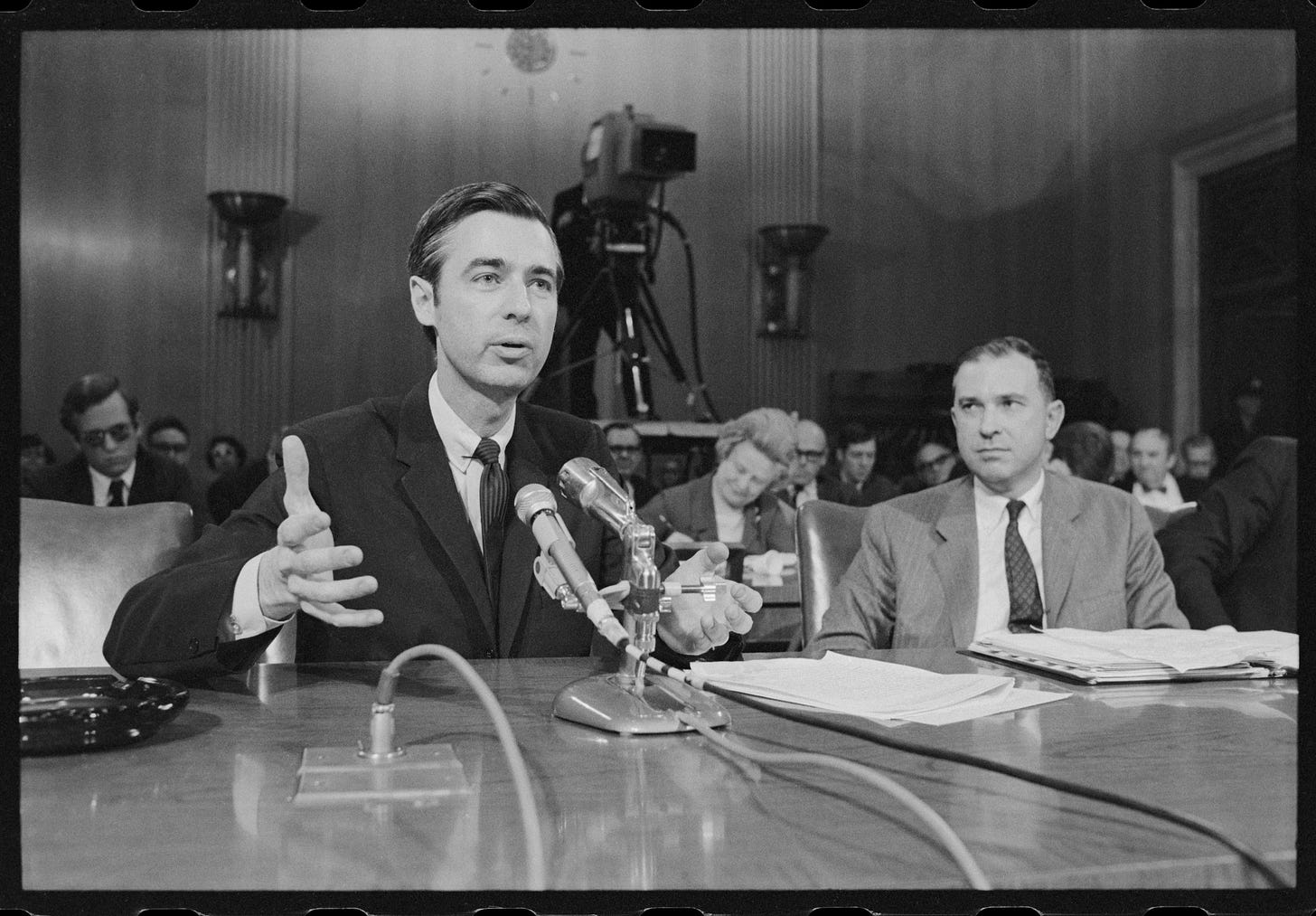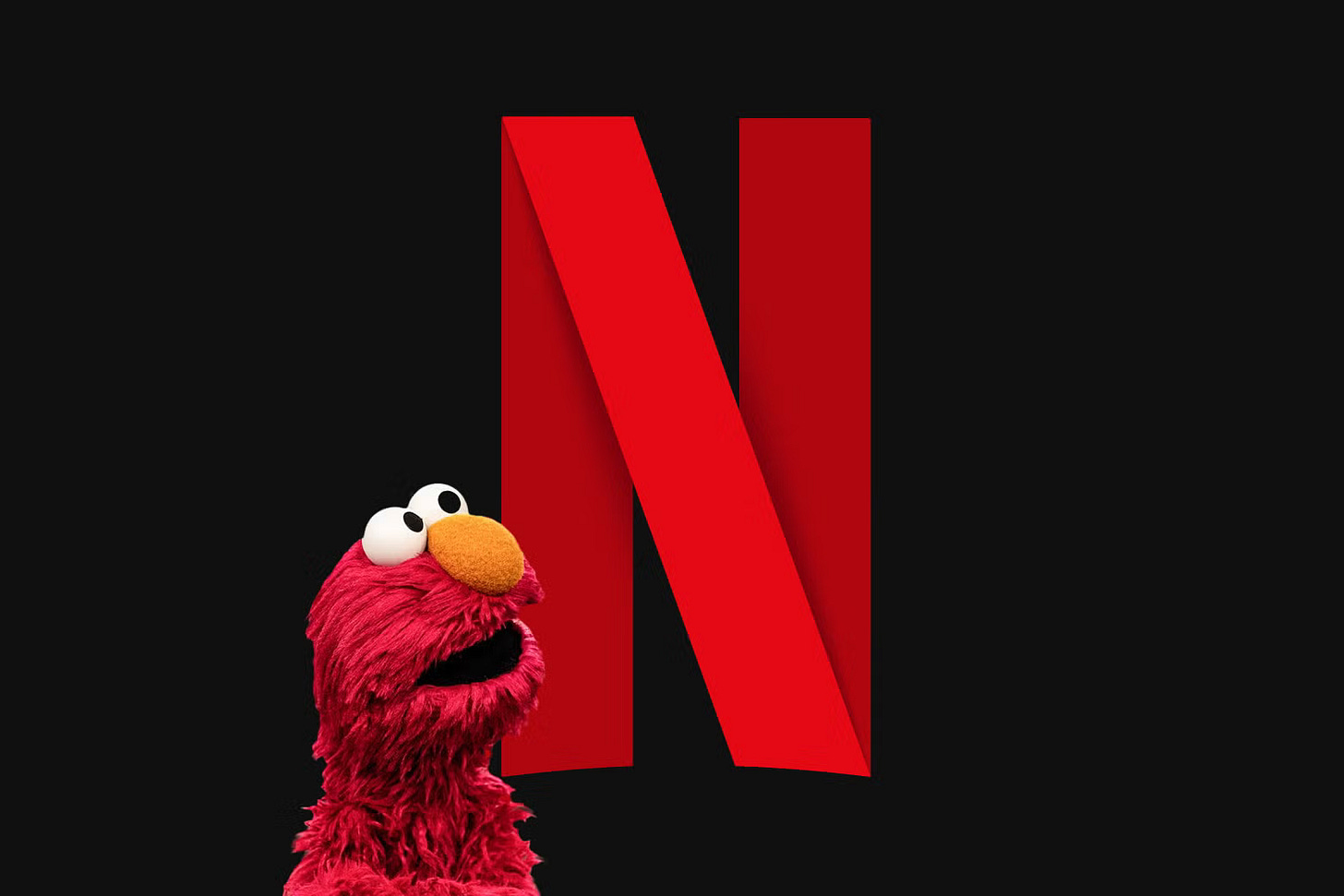Mister Rogers’ Plea
The Essential Role of NPR and PBS in Our Culture
On May 1, 2025, President Donald Trump signed an Executive Order that focuses on “Ending Taxpayer Subsidization of Biased Media” which aims at cutting all taxpayer funds to the National Public Radio (NPR) and Public Broadcasting Service (PBS). Both were created in 1967 to give more citizens free and open access to information via the radio and eventually television. Before, many states struggled to maintain a locally owned broadcast because the funding was nonexistent or considered essential, especially for communities that were underserved.
The Public Broadcasting Act of 1967 sought to strengthen the publics communication and connection to the rest of the world through “diversity of its programming depend on freedom, imagination, and initiative on both local and national levels.” Thus came that diverse programming for both adults and children that contained educational programs, like Sesame Street in 1969, and local and national news. However, shortly after its inception, President Nixon asked Congress to cut its funding from $20 million to $10 million.
At a hearing, Congress asked Fred Rogers, who recently started a show called Mister Rogers’ Neighborhood, to comment on why the funding was important. He needed to argue why the extra money was pivotal to his role at PBS. Rogers argued that the role of his and other programs was to “make it clear that feelings are mentionable and manageable” and by continuing the service “we will have done a great service for mental health.” Just like Mr. Rogers did nearly six decades ago, I implore this same reasoning now so we can protect journalism throughout the country.
New Hampshire itself has its own subdivision to include local news along with national. As of 2021, NHPR reported that about 145,000 listeners to their various programs every week. This coincides with a wide variety of choices that enhance citizens understanding of Civics, culture, politics, economics, and many others. This is tailored specifically for New Hampshire, not just the rest of the country that allows a diverse listener experience.
The Trump administration believes that both NPR and PBS are bias but does not explain how in his Executive Order. Moreover, the admin believes that it was created during a time when options for media were limited to local stations. Now, it is “abundant, diverse, and innovative” which remains an “outdated” concept. However, this understanding of journalism is limited, because it leaves out the undeniable sanction against a specific form of media.
Public broadcasting does more than relay the news to constituents. It provides the first step of conversation and resources that other stations and media forms do not. From podcasts to educational resources to the shows we all grew up watching, it is an example of free resources and open access knowledge for many who would otherwise not have it. Cable and streaming are luxuries that many still cannot afford, and public broadcasting allows that wide variety of content to be seen, utilized, and demonstrated across our American culture.
This is not only a violation of the First Amendment, but a calculated political attack on journalists. President Trump consistently demonizes the press as the “enemy of the people” that spews fake news. This dangerous rhetoric has been in front of us since he began his campaign in 2015, and he is now acting on it. As I tell my own students in the history classroom, it is important to understand bias and writing in sources, but just as vital to understand why it was published to start with.
As of this writing, the classic children’s television show, Sesame Street has found a new home on Netflix as part of a public-private broadcast that will promote new content as well as older ones. While our beloved puppets survive, it should not be this way. The show was always meant for free public access; and now, you can only watch them if you can afford the rising prices of streaming. How else will media transfer into the private hands of corporations? It is a question that plagues journalism and media as consolidation and monopolizing content grows. We must not just act but react and understand why it was published with as much emphasis as Mr. Rogers did six decades ago.
With my civic duty intact, I demand that we protect journalism.
A small note that the name of the blog has changed from “The Historians Bookshelf” to “Footnotes” to better represent the type of articles and work I’d like to post here. I realized that I wanted to comment on current issues while providing context. This is not a new concept, as people like Heather Cox Richardson and Lindsey Chervinsky do similar things. However, I think the wider the perspectives, the better to determine and understand. I may take a different historical take than others, so I hope you stick around. My intentions are to still review books, which will also provide a ‘footnote’ to the conversation.
Finally, to be ironic, there are no footnotes on this article—just links. Thanks for reading!





I don't know how I missed this. Wonderful piece my friend. <3